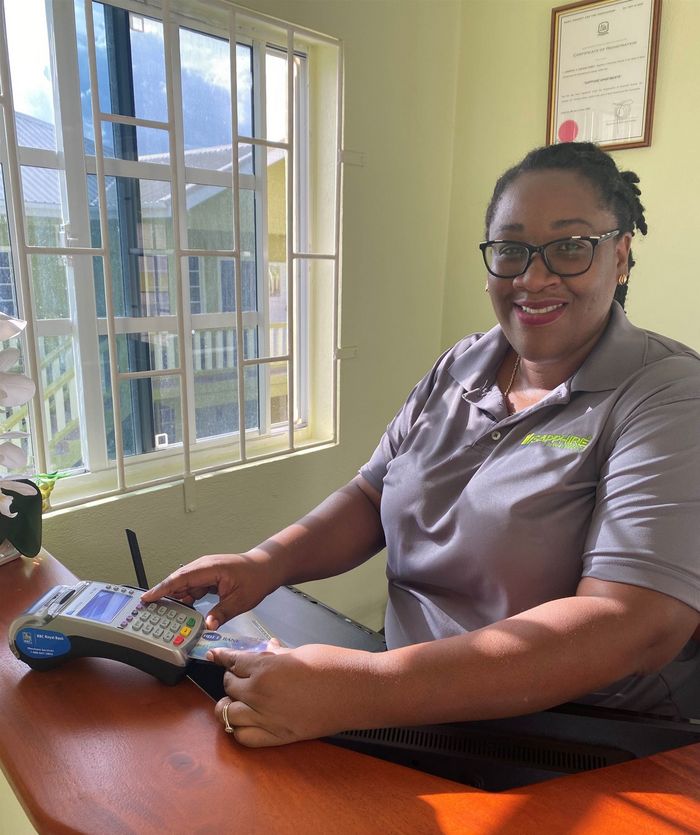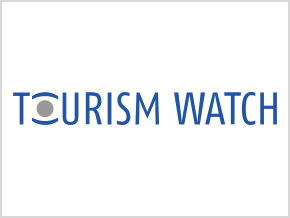With its SDGs (Sustainable Development Goals), the United Nations have set the standard for sustainable development worldwide. According to these, strengthening micro, small and medium-sized enterprises (MSMEs) is just as important as gender equality. Therefore, the UN development agency UNDP puts female empowerment at core of its project "FUTURE TOURISM: Rethinking Tourism and MSMEs in times of COVID-19" in the Eastern Caribbean. Lea Thin interviewed Krystal Yearwood, Future Tourism Support Officer, about the importance of women to strengthen and recover the tourism sector.
Krystal, the UNDP project Future Tourism puts gender equality and empowerment of women at its core. Why?
Krystal Yearwood: In the Caribbean, it is predominantly women that work in the tourism sector. But just like on the global scale, most of them occupy the lower paying and lower skilled jobs which makes them extremely vulnerable to external shocks such as the COVID-19 pandemic. With unemployment on the rise due to lockdowns and other restrictions, we recognized that women and children were particularly at risk. Therefore, our Future Tourism project was centred around providing women with tools necessary to improve their skills. To help MSMEs rebound, technology was key – however, technology adoption is significantly lower among female-owned businesses in the sector. That’s why we spend special attention on helping women to embrace digital technology. Now they can better safeguard themselves against future shocks and their ability to positioning themselves within the tourism value chain is improved.
Are there differences in how self-employed women in the tourism strongholds of the Caribbean are affected by the pandemic compared to their male counterparts?
KY: There are! Our findings on technology adoption in the sector show that only 77% of women owned businesses had an online presence, compared to 87% of men owned businesses. Moreover, only 29% of women led businesses could facilitate online payments, compared to 36% of businesses owned by men. So, when businesses needed to go digital or operate online due to the pandemic, women were less able to adapt. Further, throughout the pandemic, women carried the burden of care. Beside maintaining their jobs, they were expected to manage the online schooling for their children, taking care of their family, especially elderly family members, while men would have provided assistance in some cases.
What are the most important prerequisites for women in the Caribbean to successfully start businesses?
KY: I believe the first prerequisite is to have a clear plan of what your business goals are and what is necessary to achieve them. The next step is to acquire the necessary financing to fund the business venture. Interest rates are usually very high within the Caribbean financial sector, with large collateral requirements. Thus, access to finance is possibly the largest obstacles that a MSME needs to overcome. For women, it is even harder because of the socio-cultural context. Many men are able to access financing through networking and “non-debt” sources such as angel investors, whereas women are more likely to use their personal savings as collateral. Once the business is established, the most important step is continuous learning. This is the only way women can improve and learn new skills. It is the be-all and end-all of running a business successfully. But also to cope with unforeseen events - like the current pandemic or another catastrophe like an economic crash or a natural disaster.
What can development cooperation do to specifically support women in resilient entrepreneurship?
KY: Development projects should ensure that special attention is given to vulnerable groups and create more projects which assist female entrepreneurs to develop their businesses. UNDP Barbados and the Eastern Caribbean did exactly that. In cooperation with the Caribbean Development Bank (CDB), the Caribbean Tourism Organisation (CTO) and other partners we offered technical support for women-owned businesses to develop environmentally sustainable value chains to adapt to the new market conditions. These include being able to adapt to the changing demands of tourists such as increased leisure experiences based in authentic Caribbean culture, and also a greater awareness of being prepared for the unexpected. While being prepared for the Hurricane Season is something many MSMEs have to contend with, the shock of the pandemic really caused MSMEs to rethink how they should structure their business practices and how they use their finances.
The pandemic has depleted the financial reserves of many tourism enterprises. How could these companies invest in their resilience without falling into the debt trap?
KY: Throughout the pandemic we have seen the financial sector offering moratoria on loan payments and offering payment plans specifically tailored to the individual customer’s needs. This is encouraging for the future. We are also working on increasing developmental financing through partnerships with the private sector. Within the Future Tourism Project, businesses, particularly female-owned businesses were given grants of between US$4000- 6500 to implement planned activities in their Business Improvement Plan (BIP). The plans were created with the guidance of mentors, to improve digital marketing and financial planning. The financial support allows strategic investments, for instance to repurpose production facilities to manufacture high demand goods and services related to the tourism industry or assist MSMEs transition from an in-person, physical interaction business model to a virtual and online one. Through the awarding of grants, our programme considered the unique needs of female entrepreneurs. Grantees receive this necessary cash injection without the pressure of repayment but also the training and mentorship to effectively use it.
UNDP fosters sustainable tourism models that have to meet certain criteria. Isn't this premise another barrier for women who want to start their own business?
KY: Not necessarily. Especially in the long-term women in general, but in particular female entrepreneurs benefit from sustainable tourism models as they should be inclusive of the needs of women within the sector. This comprises for example equal pay, greater access to business financing, or the provision of care facilities for their children. In the Caribbean, the tourism sector is inextricably linked with all sectors. Once equity is achieved in the sector, sustainable development can take place throughout all other sectors of the economy and a spill over can occur into the other sectors of society.




